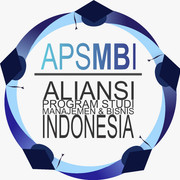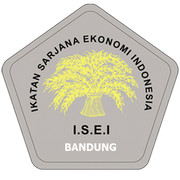Stages of International Virtual Competition Implementation in Indonesia
Abstract
The purpose of this study was to explore and describe the stages of implementing virtual competition as one of the types of virtual events. The virtual competition which was being studied was the 2021 International Photography and Short Movie Festival (IPSMF). One of the industries most affected by the Covid-19 pandemic is the event industry. As an industry that generates revenue from crowds of visitors, most event organizers are turning their offline agenda into virtual events. These phenomena continue to rise during the post-pandemic days. This research was conducted using a qualitative descriptive method. The analysis in this study was carried out based on the stages of organizing virtual which consists of Pre-Plan, Plan, Accomplish, and Response and Engage. This study indicate that the implementation of the 2021 IPSMF virtual competition has several differences. These differences exist in all stages. Based on these differences, it can be concluded that the activities carried out in the implementation of virtual events can be adjusted to the conditions and needs of the virtual event in question. The implementation of virtual events has a very wide audience reach compared to conventional events. Event organizers are required to create a digital platform with up to date, accurate, and interactive content.
Keywords
Full Text:
PDFReferences
Berridge, G. (2007). Events design and experience. Routledge.
Boland, J., Banks, S., Krabbe, R., Lawrence, S., Murray, T., Henning, T., & Vandenberg, M. (2022). A COVID-19-era rapid review: using Zoom and Skype for qualitative group research. Public Health Research & Practice, 32(2), 1–9. https://doi.org/10.17061/phrp31232112
Boonmoh, A., Jumpakate, T., Saengmanee, S., & Rungkaew, T. (2022). Integration of Technology during the COVID-19 Pandemic: Experience, Challenges and Needs of Thai EFL Teachers. REFLections, 29(2), 251-277.
Bowdin, G., Allen, J., Harris, R., McDonnell, I., & O'toole, W. (2012). Events management. Routledge.
Daravonna, A. R., & Dianita, I. A. (2021). Integrated Marketing Communication of BP Batam during The Covid-19 Pandemic. E-Proceesings Randau, 143–151. Retrieved from https://spel3.upm.edu.my/max/dokumen/irandau2021_eProceeding_iRandau2021-.pdf#page=155
Draper, J., Liu, Y., & Young, L. (2021, October). Research methods, data collection, and data analysis in meetings, expositions, events, and conventions journals. In Journal of Convention & Event Tourism (Vol. 22, No. 5, pp. 429-447). Routledge. https://doi.org/10.1080/15470148.2021.1906373
Estanyol, E. (2022). Traditional Festivals and Covid-19: Event Management and Digitalization in Times of Physical Distancing. Event Management, 26(3), 647–659. https://doi.org/10.3727/152599521X16288665119305
Foscarini, F., Krucker, M., & Golick, D. (2022). Meeting technologies and recordkeeping: a preliminary study. Records Management Journal, 32(1), 96–109. https://doi.org/10.1108/RMJ-07-2021-0028
Futaesaku, M. (2022). Changing the Form of Leisure Tourism Under the Covid-19 Pandemic: the Case of Online Events. ICIC Express Letters, Part B: Applications, 13(8), 847–852. https://doi.org/10.24507/icicelb.13.08.847
Galvani, A., Lew, A. A., & Perez, M. S. (2021). COVID-19 is expanding global consciousness and the sustainability of travel and tourism. In Global Tourism and COVID-19 (pp. 113-122). Routledge.
Honavar, S. G. (2021). Physical or virtual? Or is there a middle path?-Reimagining medical conferences in the COVID-19 era. Indian journal of ophthalmology, 69(3), 475-476. https://doi.org/doi: 10.4103/ijo.IJO_400_21
Indozone.id. (2021). Usung Tema Ekonomi Kreatif dan Seni Budaya, Ini Top 10 Event Pariwisata Kota Bandung 2022. Retrieved from indozone.id website: https://www.indozone.id/travel/JMslL6E/usung-tema-ekonomi-kreatif-dan-seni-budaya-ini-top-10-event-pariwisata-kota-bandung-2022/read-all
IPSMFestival2021. (2021). About Us - International Photography and Short Movie Festival. Retrieved from ipsmfestival.com website: http://ipsmfestival.com/#
Irna. (2021). “The Recess” of Iran receives Best Short Fiction Film Award in Indonesia. Retrieved from The Islamic REpublic News Agency website: https://en.irna.ir/news/84559437/The-Recess-of-Iran-receives-Best-Short-Fiction-Film-Award-in
Jaafar, N. S., & Khan, N. (2022). Impact of Digital Marketing Innovation in Competitive Event Industry During Covid-19: Evidence from Malaysia and The United States. International Journal of Interactive Mobile Technologies, 16(9), 130–145. https://doi.org/10.3991/ijim.v16i09.27915
Jung, S., & Lee, J. (2022). Current and future influences of COVID-19 on the knowledge management function of conventions and exhibitions. Service Business, 16(2), 391-410. https://doi.org/10.1007/s11628-022-00488-7
LaBerge, L., O’Toole, C., Schneider, J., & Smaje, K. (2020). How COVID-19 has pushed companies over the technology tipping point—and transformed business forever. Retrieved from McKinsey & Company website: https://www.mckinsey.com/business-functions/strategy-and-corporate-finance/our-insights/how-covid-19-has-pushed-companies-over-the-technology-tipping-point-and-transformed-business-forever
Merritt, K., & Zhao, S. (2022). The Power of Live Stream Commerce: A Case Study of How Live Stream Commerce Can Be Utilised in the Traditional British Retailing Sector. Journal of Open Innovation: Technology, Market, and Complexity, 8(2), 71. https://doi.org/10.3390/joitmc8020071
Morrison-Smith, S., & Ruiz, J. (2020). Challenges and barriers in virtual teams: a literature review. SN Applied Sciences, 2(6), 1-33. https://doi.org/10.1007/s42452-020-2801-5
Nabila, J. D., & Wijaksono, D. S. (2021). Astra Daihatsu special event process analysis in customer virtual event by PT. Maha Kreasi Indonesia. The Indonesian Journal of Communication Science, 14(1), 18-30. https://doi.org/http://doi.org/10.31315/ijcs.v14i1.4780
Porpiglia, F., Checcucci, E., Autorino, R., Amparore, D., Cooperberg, M. R., Ficarra, V., & Novara, G. (2020). Traditional and virtual congress meetings during the COVID-19 pandemic and the post-COVID-19 era: is it time to change the paradigm?. European urology, 78(3), 301-303. https://doi.org/10.1016/j.eururo.2020.04.018
Roos, G., Oláh, J., Ingle, R., Kobayashi, R., & Feldt, M. (2020). Online conferences–Towards a new (virtual) reality. Computational and Theoretical Chemistry, 1189, 112975. https://doi.org/10.1016/j.comptc.2020.112975
Rubinger, L., Gazendam, A., Ekhtiari, S., Nucci, N., Payne, A., Johal, H., ... & Bhandari, M. (2020). Maximizing virtual meetings and conferences: a review of best practices. International Orthopaedics, 44, 1461-1466. https://doi.org/10.1007/s00264-020-04615-9
Sharipudin, M. N. S., Hassim, N., Ayub, S. H., Fam, K. S., & Mohammed, R. (2022). The Role of Media in Sponsorship Decision Making During Covid-19: A Malaysian Perspective. Jurnal Komunikasi: Malaysian Journal of Communication, 38(2), 182–197. https://doi.org/10.17576/JKMJC-2022-3802-11
Sharma, G. D., Thomas, A., & Paul, J. (2021). Reviving tourism industry post-COVID-19: A resilience-based framework. Tourism management perspectives, 37, 100786. https://doi.org/10.1016/j.tmp.2020.100786
Shone, A., & Parry, B. (2019). Successful event management: a practical handbook. Cengage learning.
Sigala, M. (2020). Tourism and COVID-19: Impacts and implications for advancing and resetting industry and research. Journal of business research, 117, 312-321. https://doi.org/10.1016/j.jbusres.2020.06.015
Sox, C. B., Kline, S. F., Crews, T. B., Strick, S. K., & Campbell, J. M. (2017). Virtual and hybrid meetings: A mixed research synthesis of 2002-2012 research. Journal of Hospitality & Tourism Research, 41(8), 945-984. https://doi.org/10.1177/1096348015584437
Standaert, W., Muylle, S., & Basu, A. (2021). How shall we meet? Understanding the importance of meeting mode capabilities for different meeting objectives. Information & Management, 58(1), 103393. https://doi.org/10.1016/j.im.2020.103393
Steriopoulos, E., & Wrathall, J. (2021). Re-imagining and transforming events: Insights from the Australian events industry. Research in Hospitality Management, 11(2), 77–83. https://doi.org/10.1080/22243534.2021.1917809
Ton, H. N. N., & Le, N. K. (2021). Best practices for virtual events during the COVID-19 pandemic—Focusing on attendee engagement. Advances in Social Sciences Research Journal, 8(7), 103-118. https://doi.org/10.14738/assrj.87.10369
Wreford, O., Williams, N. L., & Ferdinand, N. (2019). Together alone: An exploration of the virtual event experience. Event Management, 23(4-5), 721-732. https://doi.org/10.3727/152599519X15506259855625
Yung, R., Le, T. H., Moyle, B., & Arcodia, C. (2022). Towards a typology of virtual events. Tourism Management, 92, 104560. https://doi.org/10.1016/j.tourman.2022.104560
DOI: https://doi.org/10.17509/image.2024.015
Refbacks
- There are currently no refbacks.
Copyright (c) 2024 Indria Angga Dianita, Adrio Kusmareza Adim, Pradipta Dirgantara, Abdul Fadli Kalaloi, Andry Mochamad Ramdan

This work is licensed under a Creative Commons Attribution-ShareAlike 4.0 International License.
Image : Jurnal Riset Manajemen is licensed under a Creative Commons Attribution-ShareAlike 4.0 International License
View My Stats



